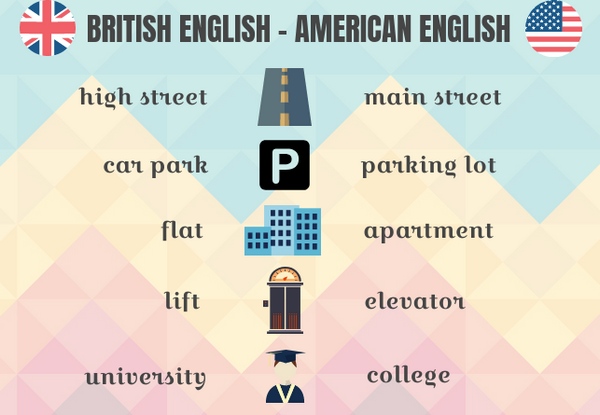English is a global language, but depending on where it is spoken, the language can differs significantly. British English and American English are two widely spoken languages, with several variations in vocabulary, grammar, spellings, and pronunciation. While both versions are understandable, knowing the difference can help you to communicate more effectively depending on the region. In this article, we’ll explore the key differences between British English and American English, highlighting how these variations impact daily usage, writing, and even pronunciation.
Check: Informal Letter Format: Learn Best Letter Writing Tips with Examples
Key Differences Between British and American English:
Find below the difference between British English and American English check the several variations in vocabulary, grammar, spelling, and pronunciation.
Aspect | British English | American English |
|---|---|---|
| Vocabulary | Lorry, Biscuit, Flat, Lift | Truck, Cookie, Apartment, Elevator |
| Spelling | Colour, Centre, Defence, Realise | Color, Center, Defense, Realize |
| Pronunciation | Non-pronunciation of “r” in words like “car” | Pronunciation of “r” in words like “car” |
| Grammar | Present perfect is more commonly used | Simple past tense is more common (e.g., "I’ve lost" vs "I lost") |
| Date Format | Day-Month-Year (e.g., 6 December 2024) | Month-Day-Year (e.g., December 6, 2024) |
| Collective Nouns | Treated as plural (e.g., "The team are") | Treated as singular (e.g., "The team is") |
| Prepositions | At the weekend, In a team | On the weekend, On a team |
| Quotation Marks | Single quotes for direct speech (e.g., ‘She said’) | Double quotes for direct speech (e.g., “She said”) |
| Use of “Got” | "Got" is used for past tense (e.g., I’ve got) | "Gotten" is used for past participle (e.g., I’ve gotten) |
Check: Essay on Digital India
When to Use British and American English
- British English is often used in formal writing, academic papers, and business correspondence within the UK and Commonwealth countries. It is also prevalent in certain fields like law and diplomacy.
- American English is more widely used in everyday conversation, informal writing, and popular culture. It is the dominant form of English in the United States and many other countries.

Check:
Application Letter Writing: Format, Examples, Tips, and More
Common English Proverbs and Their Meanings
Tips for Effective Communication
- Context is Key: Adapt your language to the specific audience and situation.
- Choice of Vocabulary: Use words that are commonly understood/accepted by your target audience.
- Spelling and Grammar: Pay attention to grammar rules and spelling conventions to ensure clarity.
- Pronunciation: Be mindful of pronunciation differences to avoid misunderstandings.
- Flexibility: Embrace both varieties of English and adapt your language accordingly.
By understanding these nuances, you can communicate more effectively with people from different English-speaking backgrounds and enhance your global language skills.
Check:
Tenses Chart With Examples: Best to Learn Tenses and Sentence Formation
Report Writing: Format, Examples, Tips, and More
Email Writing: Format, Examples, Tips, and More
Comments
All Comments (0)
Join the conversation